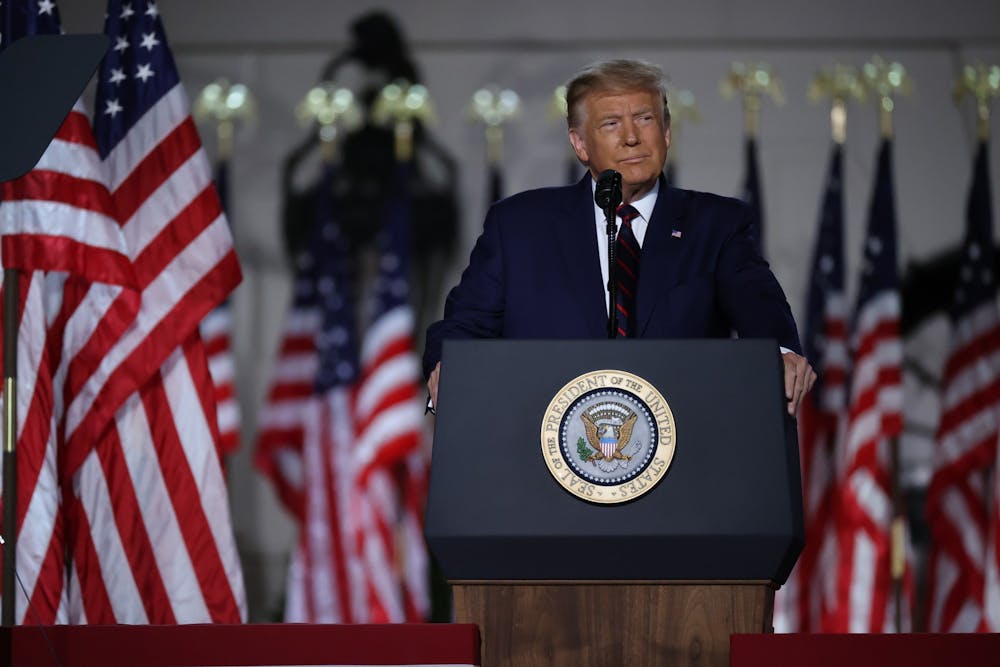Former President Donald Trump has backed many different GOP primary candidates thus far, many of which have fallen through.
At this point, Trump has extended a total of 185 endorsements to a broad mix of state and federal candidates, according to Politico. So far, 93 of these candidates have won their respective races. It's clear the former president still holds some power within the Republican party.
But many Trump-backed candidates have failed to secure their candidacies in many important races. Many factors play into determining which candidates move forward in their candidacy. Things like incumbency, candidate track record and the support of the GOP as a whole are key in understanding how much of an effect an endorsement from Trump actually has on a campaign's viability.
In this primary cycle, Trump has backed numerous incumbent challengers. As it appears now, his biggest fallthrough is in Georgia's gubernatorial primary, where former Senator David Perdue was unable to secure the Republican nomination against current incumbent Governor Brian Kemp. Although Trump extended his endorsement to Perdue early on in his gubernatorial campaign, Perdue still lost by quite a sizable margin.
Even incumbent candidates such as Madison Cawthorne who received this sought-after endorsement came up short. Again, other factors play different roles in determining which candidate secures a nomination: it's likely that Cawthorne's track record in and outside of Congress, including numerous scandals, was more to blame in his defeat in his primary race.
To be clear, Trump has also supported many candidates who were successful in securing their party's nomination — candidates like J.D. Vance in Ohio and Ted Budd in North Carolina arguably wouldn't have won without Trump's support. But in a bid to bolster the value of his endorsement, Trump had also made last-minute pledges to uncontested candidates, with endorsements often arriving just days before the elections.
It's clear that even the former President himself understands that, although he may wield some influence over his party, the value of his endorsement and his ability to sway the direction of his party is slowly deteriorating. Numerous MSNBC polls taken prior to and even on election day paint a picture of an electorate who is more concerned about issues like inflation and economic recovery and how the candidates will actually address them rather than whether they've been backed by Trump.
Especially during harsh times like these, where prices everywhere are rising and everyday working Americans feel the growing financial pressure, it's clear that more superficial factors like high-ranking endorsements just don't stack up.
Although it currently appears the GOP will likely regain control of Congress following this year’s midterm elections, it's starting to become obvious that far less of this will come from Trump-supported candidates this cycle. And if this eventuality comes to fruition, it'll be interesting to see just how much pull Trump retains even in a GOP controlled legislature.
Sean Gilley (he/him) is a senior studying political science and economics with a certificate in informatics.




